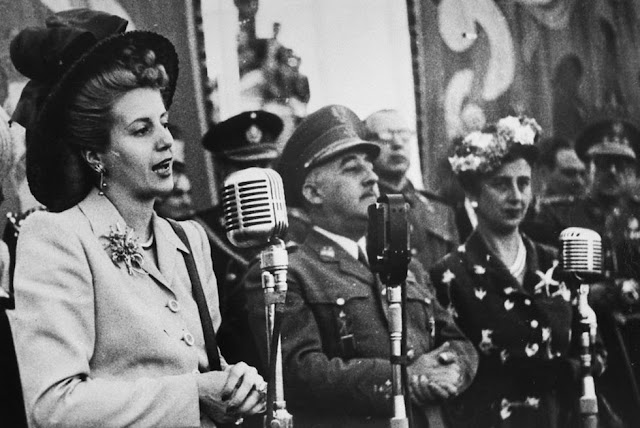Eva Peron (1919 – 1952) First Lady of Argentina 1946 – 1952
Eva Peron The Life and Legacy of Argentina's Iconic First Lady
Eva Peron, also known as Evita, was a powerful and controversial figure in Argentine history. Born on May 7, 1919, in Los Toledo's, Argentina, she rose from humble beginnings to become one of the most influential women of her time. As the wife of Argentine President Juan Perón, she used her position to advocate for the rights of the poor and working-class, earning her both adoration and criticism. Today, more than 70 years after her death, Evita remains an iconic figure in Argentine history and a symbol of women's empowerment.
Early Life:
Eva was born into poverty in the small town of Los Tildes. Her parents were unmarried, and her father abandoned the family when she was a child. Despite these challenges, Eva was determined to succeed. At a young age, she moved to Buenos Aires to pursue her dreams of becoming an actress.
Rise to Fame:
Eva's beauty and talent quickly caught the attention of the Argentine people, and she became a popular radio and stage actress. It was during this time that she met Juan Perón, a rising political figure who would become her husband and later, the President of Argentina.
Political Career:
After Juan became president in 1946, Eva used her platform to advocate for social justice and equality. She established the Eva Perón Foundation, which focused on helping the poor and working-class, and provided funding for hospitals, schools, and orphanages. She also worked tirelessly to improve the lives of women, helping to pass legislation that ensured equal pay for equal work and establishing a women's right to vote.
Controversy and Criticism:
Despite her many achievements, Eva was not without her critics. Some saw her as a power-hungry figure who used her husband's position for her own gain, while others accused her of corruption and abuse of power. Nevertheless, she remained popular with the Argentine people and was revered as a symbol of hope and compassion.
Final Years and Legacy:
Eva's life was cut short when she died of cervical cancer in 1952 at the age of 33. Her death was mourned by millions, and she was given a state funeral, which was attended by thousands of people. Today, she is remembered as a symbol of strength and courage, and her legacy continues to inspire people around the world.
Conclusion:
Eva Perón's life and legacy remain an important part of Argentine history. Despite her controversies and criticisms, she remains an iconic figure who fought for the rights of the poor and working-class, and inspired a generation of women to stand up for what they believe in. Today, her name is synonymous with strength, courage, and the fight for social justice, and her impact on Argentina and the world will never be forgotten.











No comments